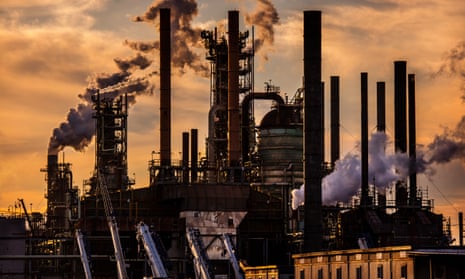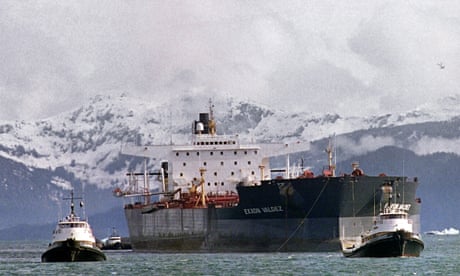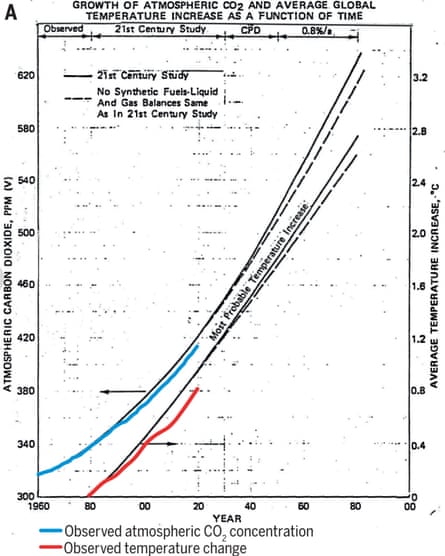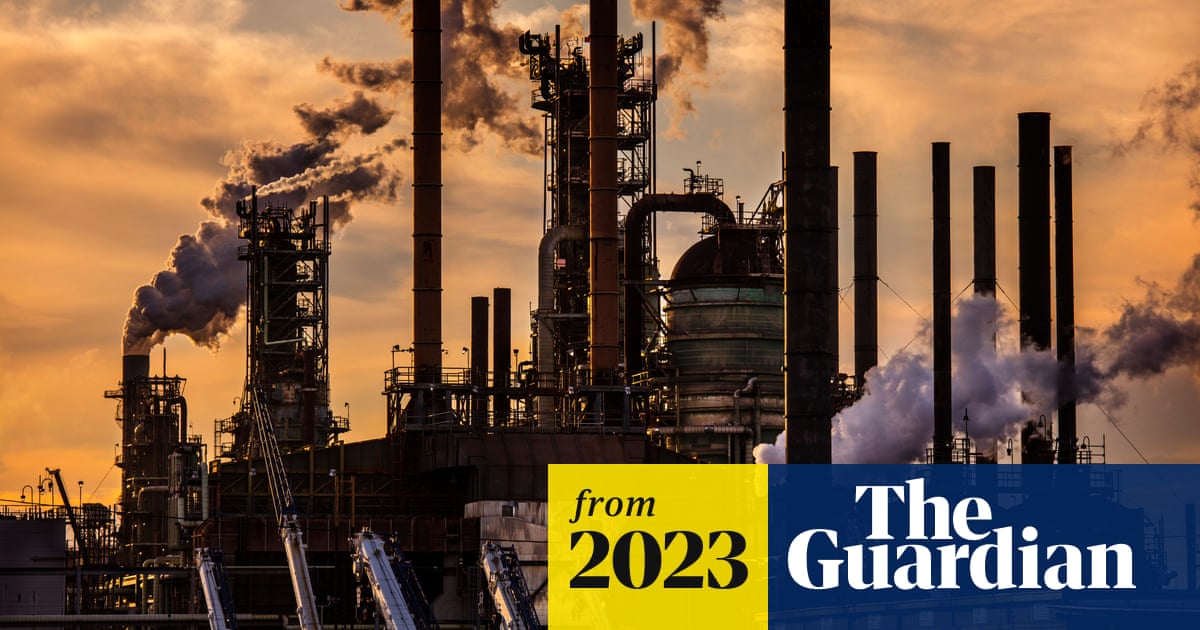Absolem
Active member
no kidding,i have vastly better things to do with my time than watch questionable videos from random fucknuts and base my entire existence on what they "claim"
Al Gore received 600 likes in that video. Dudes a Baller.
no kidding,i have vastly better things to do with my time than watch questionable videos from random fucknuts and base my entire existence on what they "claim"
He's certainly no hero of mine.Al Gore received 600 likes in that video. Dudes a Baller.
Musk followed up with a tweet earlier this week that said, "The S in ESG stands for Satanic."
However, in the interview, Fink said BlackRock took in $230 billion in 2022 from US clients, and the outflows were small, though he takes the issue "very seriously" and was trying to address the negative mood around ESG:The S in ESG stands for Satanic
— Elon Musk (@elonmusk) January 16, 2023
While Fink tries to save the ESG narrative, a former BlackRock senior executive, Terrence R. Keeley, recently opined in a WSJ article that after "trillions of dollars have poured into environmental, social and governance funds in recent years ... there is astonishingly little evidence of its tangible benefit.""We are doing everything we can to change the narrative."




You are just a cog in the wheel of the WEF. Good show. Do a search for this phrase oil giant Exxon privately “predicted global warming correctly and skilfully and tell me the time frame of the articles. All within the last week for something that is 45 years old.....Here's the real hoax.
Revealed: Exxon made ‘breathtakingly’ accurate climate predictions in 1970s and 80s
Oil company drove some of the leading science of the era only to publicly dismiss global heating

Oil refinery, owned by Exxon Mobil, the second largest in the US in Baton Rouge, Louisiana. Exxon predicted rising temperatures and emissions that nearly matched what took place, the study found. Photograph: Barry Lewis/In Pictures/Getty Images
Oliver Milman in New York
Fri 13 Jan 2023
The oil giant Exxon privately “predicted global warming correctly and skilfully” only to then spend decades publicly rubbishing such science in order to protect its core business, new research has found.
A trove of internal documents and research papers has previously established that Exxon knew of the dangers of global heating from at least the 1970s, with other oil industry bodies knowing of the risk even earlier, from around the 1950s. They forcefully and successfully mobilized against the science to stymie any action to reduce fossil fuel use.
A new study, however, has made clear that Exxon’s scientists were uncannily accurate in their projections from the 1970s onwards, predicting an upward curve of global temperatures and carbon dioxide emissions that is close to matching what actually occurred as the world heated up at a pace not seen in millions of years.
Exxon scientists predicted there would be global heating of about 0.2C a decade due to the emissions of planet-heating gases from the burning of oil, coal and other fossil fuels. The new analysis, published in Science, finds that Exxon’s science was highly adept and the “projections were also consistent with, and at least as skillful as, those of independent academic and government models”.

Exxon knew of climate change in 1981, email says – but it funded deniers for 27 more years
Read more
Geoffrey Supran, whose previous research of historical industry documents helped shed light on what Exxon and other oil firms knew, said it was “breathtaking” to see Exxon’s projections line up so closely with what subsequently happened.
“This really does sum up what Exxon knew, years before many of us were born,” said Supran, who led the analysis conducted by researchers from Harvard University and the Potsdam Institute for Climate Impact Research. “We now have the smoking gun showing that they accurately predicted warming years before they started attacking the science. These graphs confirm the complicity of what Exxon knew and how they misled.”
The research analyzed more than 100 internal documents and peer-reviewed scientific publications either produced in-house by Exxon scientists and managers, or co-authored by Exxon scientists in independent publications between 1977 and 2014.

Photograph: Supran, et al., 2023, “Assessing ExxonMobil’s global warming projections”
The analysis found that Exxon correctly rejected the idea the world was headed for an imminent ice age, which was a possibility mooted in the 1970s, instead predicting that the planet was facing a “carbon dioxide induced ‘super-interglacial’”. Company scientists also found that global heating was human-influenced and would be detected around the year 2000, and they predicted the “carbon budget” for holding the warming below 2C above pre-industrial times.
Armed with this knowledge, Exxon embarked upon a lengthy campaign to downplay or discredit what its own scientists had confirmed. As recently as 2013, Rex Tillerson, then chief executive of the oil company, said that the climate models were “not competent” and that “there are uncertainties” over the impact of burning fossil fuels.
“What they did was essentially remain silent while doing this work and only when it became strategically necessary to manage the existential threat to their business did they stand up and speak out against the science,” said Supran.
“They could have endorsed their science rather than deny it. It would have been a much harder case to deny it if the king of big oil was actually backing the science rather than attacking it.”
Climate scientists said the new study highlighted an important chapter in the struggle to address the climate crisis. “It is very unfortunate that the company not only did not heed the implied risks from this information, but rather chose to endorse non-scientific ideas instead to delay action, likely in an effort to make more money,” said Natalie Mahowald, a climate scientist at Cornell University.
Mahowald said the delays in action aided by Exxon had “profound implications” because earlier investments in wind and solar could have averted current and future climate disasters. “If we include impacts from air pollution and climate change, their actions likely impacted thousands to millions of people adversely,” she added.
Drew Shindell, a climate scientist at Duke University, said the new study was a “detailed, robust analysis” and that Exxon’s misleading public comments about the climate crisis were “especially brazen” given their scientists’ involvement in work with outside researchers in assessing global heating. Shindell said it was hard to conclude that Exxon’s scientists were any better at this than outside scientists, however.
The new work provided “further amplification” of Exxon’s misinformation, said Robert Brulle, an environment policy expert at Brown University who has researched climate disinformation spread by the fossil fuel industry.
“I’m sure that the ongoing efforts to hold Exxon accountable will take note of this study,” Brulle said, a reference to the various lawsuits aimed at getting oil companies to pay for climate damages.
A spokesperson for Exxon said: “This issue has come up several times in recent years and, in each case, our answer is the same: those who talk about how “Exxon Knew” are wrong in their conclusions. In 2019, Judge Barry Ostrager of the NY State Supreme Court listened to all the facts in a related case before him and wrote: “What the evidence at trial revealed is that ExxonMobil executives and employees were uniformly committed to rigorously discharging their duties in the most comprehensive and meticulous manner possible….The testimony of these witnesses demonstrated that ExxonMobil has a culture of disciplined analysis, planning, accounting, and reporting.”

Revealed: Exxon made ‘breathtakingly’ accurate climate predictions in 1970s and 80s
Oil company drove some of the leading science of the era only to publicly dismiss global heatingwww.theguardian.com
If you bothered to read any of these articles you'd understand the time frame. I first read about this several years ago, but I saw a recent article which is why I posted. You have very little credibility, and what you had took a distinct nosedive (if possible) when you mentioned the plot to kill off 8 billion people.You are just a cog in the wheel of the WEF. Good show. Do a search for this phrase oil giant Exxon privately “predicted global warming correctly and skilfully and tell me the time frame of the articles. All within the last week for something that is 45 years old.....
NPC
The WEF, Bill Gates et al come right out and say they want to reduce the worlds population to 500k. What's not credible about them?I first read about this several years ago, but I saw a recent article which is why I posted. You have very little credibility, and what you had took a distinct nosedive (if possible) when you mentioned the plot to kill off 8 billion people.
Honestly your "cog in the wheel of the WEF" or "deep state" bullshit is just your stock answer for everything.
You have zero research skill. You can't even use google it seems.The WEF, Bill Gates et al come right out and say they want to reduce the worlds population to 500k. What's not credible about them?
"Fair enough", said Tipper.I also always thought Al Gore should have been a porn star nick named "the bull". Every time he was about to get laid he could say "Get ready to be Gored by the Bull!"
Schwab is the spokesman fot the WEF but the 500k is their policy. Some are getting a little tired of his 30 years running the show. Bill Gates says 500K too. And that's what's on the Georgia Guidestones.You have zero research skill. You can't even use google it seems.
Fact Check-Depopulation quote has been misattributed to Klaus Schwab
By Reuters Fact Check
3 MIN READ
A quote about depopulation has been misattributed to the founder and executive chairman of the World Economic Forum (WEF) Klaus Schwab.
Social media posts (here , here) have shared an excerpt said to be taken from a book written by Schwab called ‘Covid-19: The Great Reset’ (here).
The excerpt reads: “At least 4 billion ‘useless eaters’ shall be eliminated by the year 2050 by means of limited wars, organized epidemics of fatal rapid-acting diseases and starvation […]
“The population of Canada, Western Europe and the United States will be decimated more rapidly than on other continents, until the world’s population reaches a manageable level of 1 billion, of which 500 million will consist of Chinese and Japanese races, selected because they are people who have been regimented for centuries and who are accustomed to obeying authority without question.”
A search shows that the extract cannot be found in Schwab’s book (reparti.free.fr/schwab2020.pdf).
It does, however, feature in a book by John Coleman (here) called 'Conspirators' Hierarchy: The Story of the Committee of 300.’
The book claims to detail an organisation called ‘the committee of 300’, a supposedly “all powerful group” that controls every aspect of the world.
Specifically, Coleman claims to summarise the work of a late member of the committee, who was outlining a proposal for a world revolution (see page 105). The claims made by Coleman in the book are outside the scope of this check.
Quotes wrongly attributed to Schwab have previously been covered by Reuters in these fact checks (here , here).
VERDICT
False. The excerpt was not written by Schwab. It was taken from a book called ‘Conspirators’ Hierarchy: The Story of the Committee of 300.’
This article was produced by the Reuters Fact Check team. Read more about our work to fact-check social media posts here.
Hey no need to bring them into it....Threeberries is a disciple of Marjorie Taylor Greene.
Better put protect yourself from those Jewish space lasers.
You mention nothing about being wrong about your previous statement? Where is this policy you speak of? Did you actually watch the Bill Gates video, or did you watch it without understanding anything?Schwab is the spokesman fot the WEF but the 500k is their policy. Some are getting a little tired of his 30 years running the show. Bill Gates says 500K too. And that's what's on the Georgia Guidestones.
Do you support the WEF?